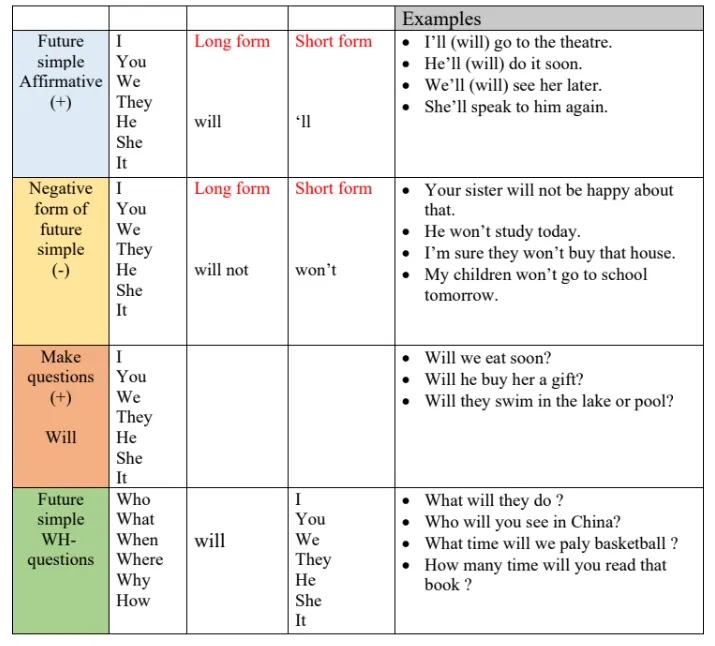- Shall is used to indicate a promise or a threat , while will can be used for making promises or threats.
- Both help in talking about present, as well.
ATTENTION:
In Simple Future Tense, we do not add any suffixes like –s, ed, etc. at the end of the verbs. We use will/shall as an auxiliary verb with first forms of the verbs after the subjects. (For “will” and “shall” without separating the subjects as singular or plural – the rule applies to all subjects in the same way)
CONTRACTIONS:
For “WILL”;
will –> ‘ll Ex: I‘ll come back.
will not –> won’t Ex: I won’t study.
For “SHALL”
shall not –> shan’t Ex: We shan’t make any agreement.
FUTURE TENSE WITH “SHALL”
The use of shall as an auxiliary verb has been greatly reduced in recent times. We see it only in formal writings. However, we can use or see “shall” as stated below.
“Shall” is mainly used to make an offer and a suggestion or to ask for advice with subjects “I“ and “We”in questions.
Examples:
- Shall I open the window? ( offer )
- Shall we go to the theatre tonight? ( suggestion )
- What shall I wear? ( advice )
- What shall I tell her? ( advice )





No comments:
Post a Comment